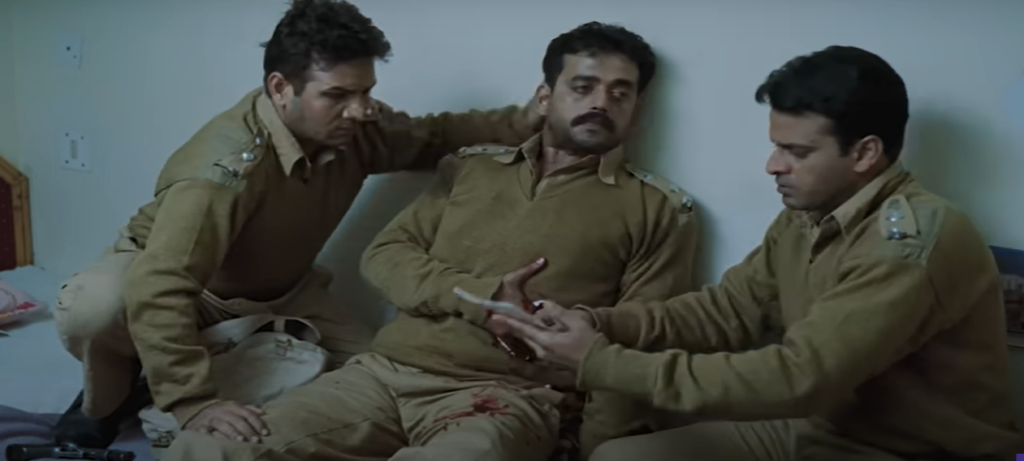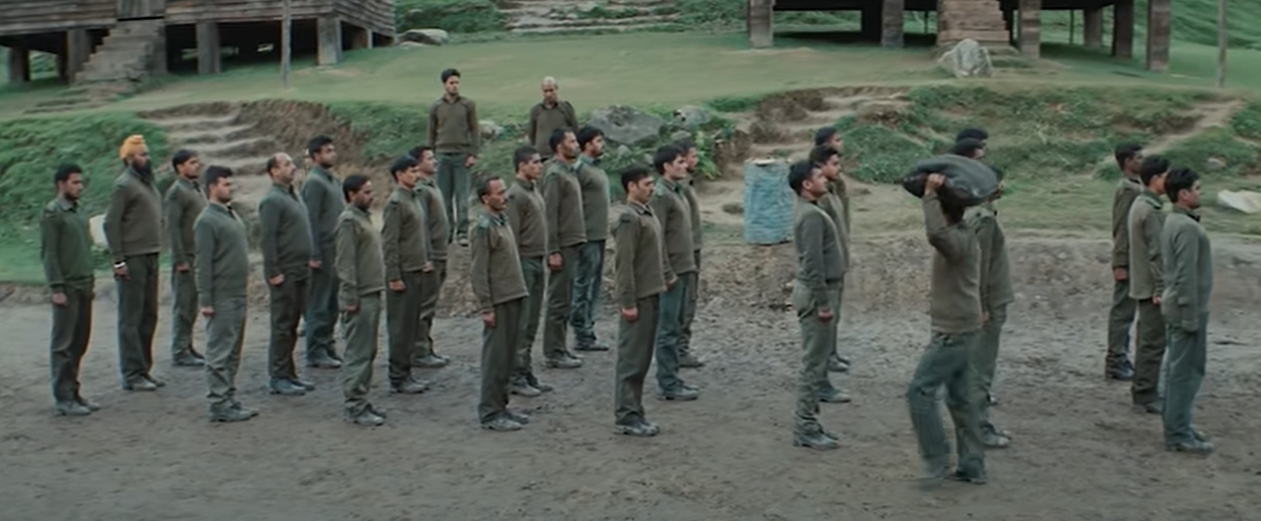With the runaway success of Kollywood blockbuster Amaran starring Sivakarthikeyan and Sai Pallavi garnering positive reviews across the country for its true-to-life depiction of the life of Major Mukund Varadarajan, we are compelled to bring out a review of this gem of a film, a 2007-Manoj Bajpayee starrer, which we believe is one the best Indian war films but did not get the attention it deserved.
Directed by Amrit Sagar (grandson of Ramanand Sagar), “1971” is not your typical Indian war film that blends personal drama, lover/wife’s agony alongside soldiers’ struggle for survival. This film narrates a tale of the heroic acts of a handful of Indian prisoners of war (POW) from the 1971 war who try to escape from a Pakistani camp after learning that their presence in the country’s prisons have been unacknowledged by both nations even six years after the war ended.
The movie opens at a picturesque camp somewhere in rural Pakistan six years later where a group of Indian POWs are participating in a drill parade supervised closely by the Pakistani army officers, who discuss yet another failed attempt to escape by Major Suraj Singh (played by Manoj Bajpayee). He is transferred to the camp hosting 1965 POWs, who have lost their minds in Pakistani prisons, as a punishment.

Meanwhile, Indian POWs from various Pakistani prisons are assembled together in a camp close to the Indian border ahead of the inspection by Pakistan Human Rights Commission and International Red Cross officials who are still looking for Indian POWs to repatriate them.
“The biggest asset of the movie is its stellar cast which includes Manav Kaul, Ravi Kishen (of Laapata Ladies), Deepak Dobriyal who bring their characters fully alive with Manoj Bajpayee delivering a power-packed performance as the action progresses”
When the Indian POWs learn that Pakistan government has failed to acknowledge their presence to the Red Cross, a handful of them plan on a daring camp-break to cross over to the Indian border under the leadership of Major Suraj Singh.
Through meticulous planning and careful manipulation of the Pakistani guards, the six POWs steal arms, maps and other essentials for their escape and get out of the camp sacrificing one of them, Subedar Ahamed (played by Chittaranjan Giri), who decides to set fire to the ammunition dump to create a diversion for the others after the crude bomb they built turns damp. The remaining five POWs hijack a military truck during the Pakistan Independence Day celebration at the camp and attempt one of the most daring and almost impossible escapades.
“The most impressive factor in the film is that, barring two or three scenes, there is no female presence throughout the narrative — so uncommon at a time when Bollywood was still clinging on on to romance as its sole bread winner.”
The rest of the film follows the five men as they overcome one challenge after another as they try to make their way to the India-Pakistan border near Baramulla, closest to their camp. Do they make it to the border and expose the enemy nation’s lies remains or get buried in the sands of time as identity-less men forms the rest of the plot, which twists and turns till the very end.

The biggest asset of the movie is its stellar cast which includes Manav Kaul, Ravi Kishen (of Laapata Ladies), Deepak Dobriyal who bring their characters fully alive with Manoj Bajpayee delivering a power-packed performance as the action progresses. The elegance and suave with which Piyush Mishra essayed the role of Major Bilal Malik deserves special mention.
Amrit Sagar’s rendition of the story, credited to him and Piyush Mishra, does not leave any lag during the entire narrative. Chirantan Das’s camera does full justice to scenic mountains amid which the movie is shot and Amrit Sagar’s music adds just the right amount of flavour without disrupting the overall flow of the narrative.
The most impressive factor in the film is that, barring two or three scenes, there is no female presence throughout the narrative — so uncommon at a time when Bollywood was still clinging on on to romance as its sole bread winner. Perhaps, that explains why the movie did not get as much recognition despite winning a national award.
But any work of art can only be fully judged with the passage of time and on that score, the movie 1971 remains an evergreen classic and is likely to continue for a long time, thanks to YouTube and other streaming channels.
If you’re a fan of war movies, this is one of those films that is definitely worth a watch any day, not just a rainy one.


